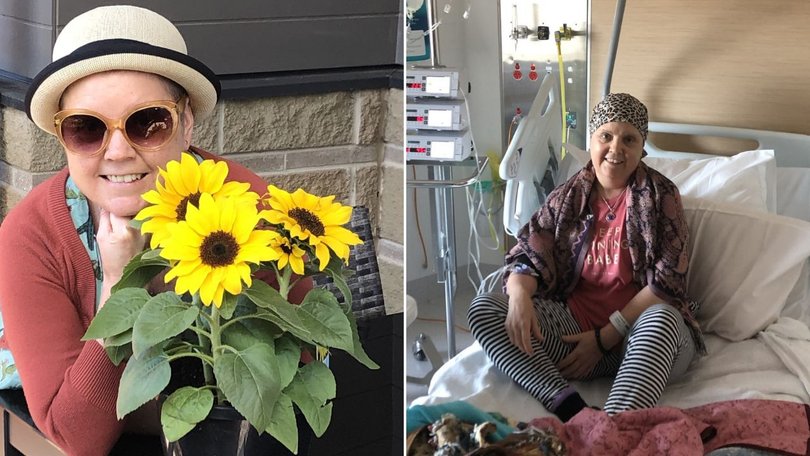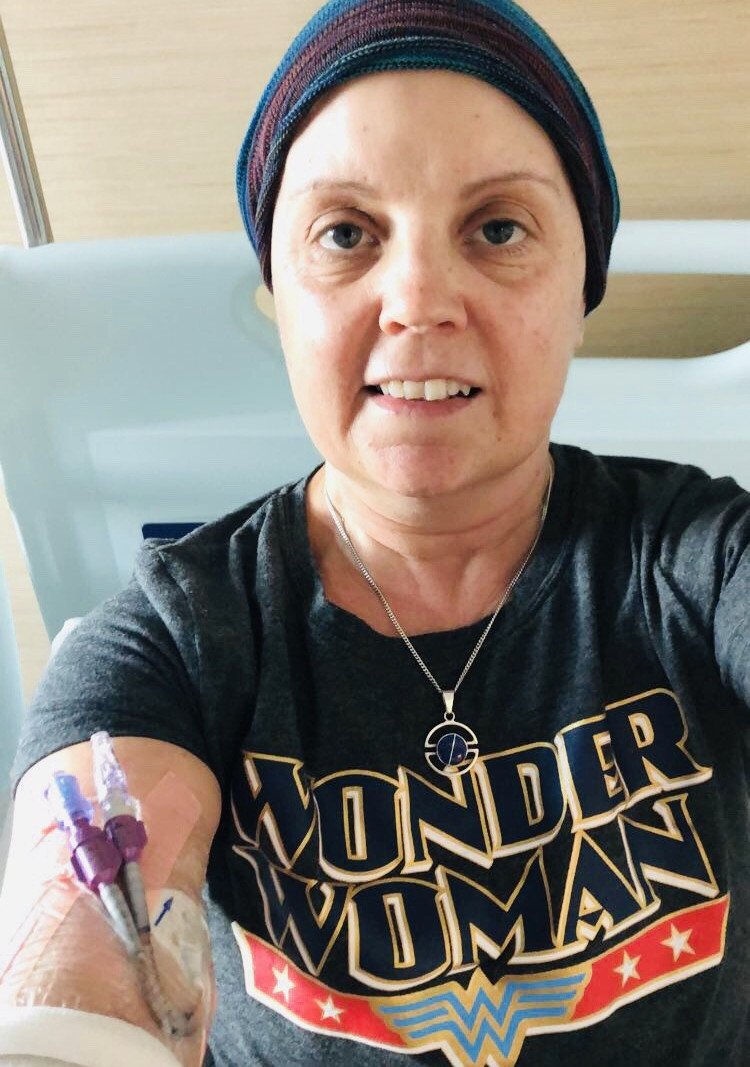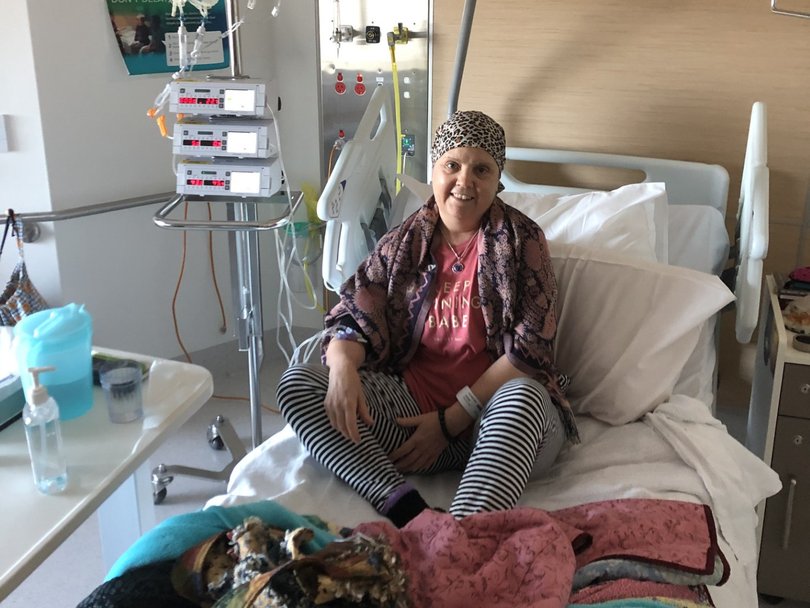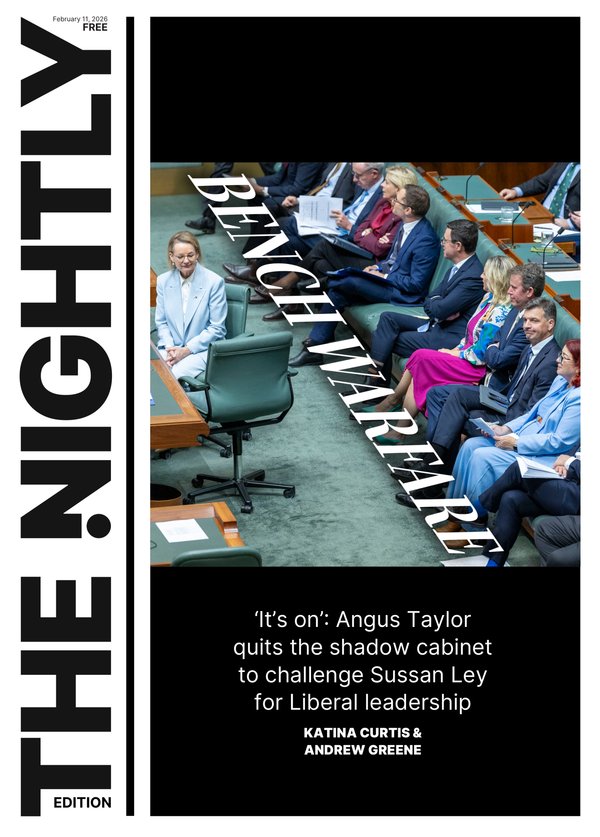Shelley had a headache. It turned into a rare acute myeloid leukaemia diagnosis
The mum-of-two felt a bit run down, and initially thought she just had a cold.

Shelley Garvey blamed her fatigue and headaches on a slow recovery from a virus.
It turned out to be a rare form of cancer.
The Adelaide mum was just 46-years-old when she was diagnosed with acute myeloid leukaemia (AML) in June 2019.
Sign up to The Nightly's newsletters.
Get the first look at the digital newspaper, curated daily stories and breaking headlines delivered to your inbox.
By continuing you agree to our Terms and Privacy Policy.Garvey had found it hard to recover from a virus — and then she noticed a persistent pulsating sensation in the back of her head, accompanied by a dull headache, which lasted for about seven weeks.
This Rare Cancers Awareness Day, the Leukaemia Foundation is calling for greater awareness and urgent investment in research to tackle one of the deadliest and underinvested rare cancers in Australia – acute myeloid leukaemia (AML).
While more than 120 types of blood cancer are individually considered rare, AML stands out for all the wrong reasons — it is fast, aggressive, and survival rates have barely improved in over two decades.
Garvey thought it was a cold or just feeling a bit run down as a busy mum, but she never thought it was cancer.

The Loxton mum-of-two visited her GP, who sent her for a series of tests. Within just two days, she received the devastating diagnosis of AML.
“This was a life shattering diagnosis, and it turned the world of both myself and my family completely upside down,” Garvey told 7NEWS.com.au.
“It meant leaving my home and my two teenage children to go to Adelaide where treatment would begin.”
Garvey and her husband Jason immediately packed their bags to drive three hours to hospital in Adelaide, leaving their children Jett and Jayda-Star — then 15 and 17 — in Loxton.
In Adelaide, almost three hours away from home, they were able to stay at the Leukaemia Foundation’s free blood cancer accommodation centre so that Garvey could receive the life-saving treatment she so urgently needed.
Garvey would remain in treatment for 11 long months — away from her family, friends and most importantly, her children.
“I used to be sad, the idea that my kids could not have a mother, but I had this attitude that I’m going to do this,” she said. “I’m going to get through this.”
“My husband was my carer and our world just shifted. It really wasn’t fair on anybody….to have to see a parent go through that and be so sick…it was really tough because I was away from home.
“They would come and stay some and visit, but it was really tough, emotionally, mentally, to be away from my kids.”
After months of intensive chemotherapy and finally a stem cell transplant, Garvey is thankfully celebrating more than five years in remission.
Especially grateful to have found a stem cell donor which “ultimately” saved her life.
Today, Garvey is grateful for the Leukaemia Foundation’s support.
“Through it all, I had the Leukaemia Foundation by my side,” she said.
“They were our saving grace, providing my husband and I with accommodation. They gave us a home away from home — what they gave us was community, at a time when we felt so alone.”
“My family and I learned that we are more resilient than we know. The Leukaemia Foundation relies on donations so that it can continue to provide accommodation to families that need to relocate for treatment.”

AML is “ruthless”, Leukaemia Foundation CEO Chris Tanti said.
“We’ve seen incredible progress in the treatment and survival for some blood cancers, but comparatively, AML has been left behind,” Tanti said.
“The harsh reality is, if you’re diagnosed with AML, there’s an 80 per cent chance you won’t survive.
“That’s not just unacceptable — it’s unthinkable in 2025.”
The Leukaemia Foundation believes the most critical step to reversing the impact of AML is greater investment in blood cancer research focused on early detection and treatment, and more support for patients.
“Since 2000, the Leukaemia Foundation has invested more than $87 million in blood cancer research, with most of our current research investment focused on AML,” Tanti said.
“We’re proud to be backing some of Australia’s best and brightest researchers who are working on tomorrow’s answers, whilst standing beside families who critically need our help today.
“With the right investment, we believe we can rewrite the future for people with AML. But without it, the story stays the same — and too many lives will be lost.”
The Australian Academy of Science and the Australian Academy of Health and Medical Sciences have both echoed the call for urgent investment through the Blood Cancer Research Roadmap.
Without it, AML survival rates will continue to lag.
The Leukaemia Foundation is urging Australians to donate to support life-saving research and vital services for families facing AML and other blood cancers via its tax appeal.
Originally published on 7NEWS
